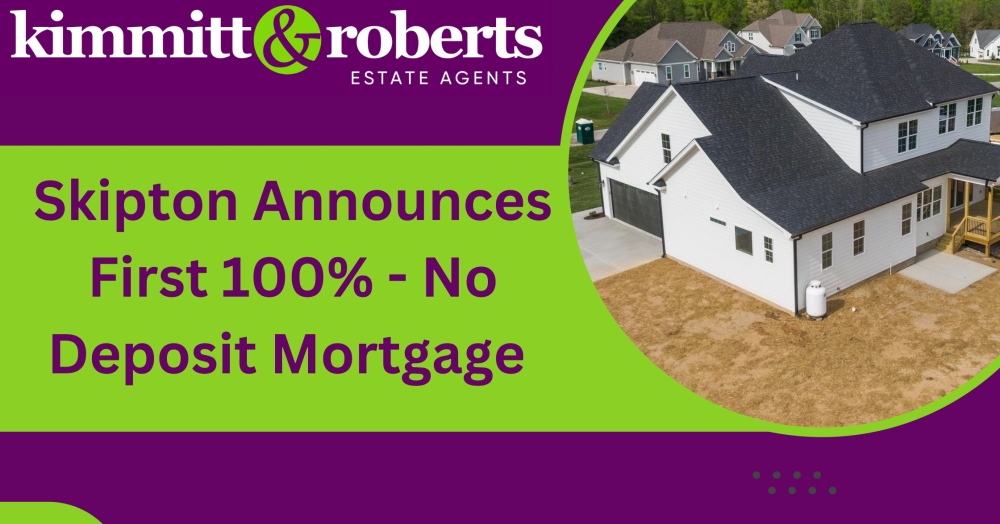
Skipton Launches First 100% No Deposit Mortgage Product Since 2008
This could be a 'sensible' option for some renters
Renters struggling to save for a deposit can now get a 100% mortgage from Skipton Building Society. It's the first no-deposit deal – that doesn't require a guarantor's backing – to launch in the UK since 2008, and this could be a "sensible" option for some. We explain who can get it, how it works and the risks you need to watch out for below.
Skipton's 100% mortgage is only available to first-time buyers who have paid their rent in full (and on time) for at least 12 months
Skipton's 100% mortgage is a five-year fixed mortgage and works similarly to other fixed mortgage deals on the wider market, in that you are charged the same interest rate for a five-year period. The main difference is that Skipton's new deal doesn't require a deposit.
This mortgage is aimed at renters who are struggling to save for a deposit (though those who do have a deposit – as long as it's smaller than 5% – can also apply). It's been launched in an era of spiralling rents and increasing property prices. To get one of these mortgages, you:
Need to be a first-time buyer and 21 years of age or above (this applies to all applicants).
Need to have been renting for at least 12 consecutive months out of the past 18 and be up to date on all rental payments during this period. Proof of this will be required, which could be via bank statements or confirmation from a letting agent.
Need to be up to date for at least 12 consecutive months out of the past 18 on household bills, such as council tax and electricity and/or gas. Again, proof will be required.
Can't have missed any other repayment commitments over the past six months – such as Netflix subscriptions, mobile phone repayments and so on. Any defaults will show on your credit report.
Aren't looking to buy a new-build flat.
But there is a catch – you can only borrow the equivalent of, or less than, what you pay on rent each month
Normally when you apply for a mortgage, the maximum amount you can borrow is based on your income and outgoings and a lender's specific affordability calculations. Typically, it's roughly your salary multiplied by four to four and a half.
Yet with Skipton's 100% mortgage, the amount you can borrow is not allowed to be more than the equivalent of what you pay each month in rent. In other words, if you pay £1,000 a month on rent, your Skipton 100% mortgage couldn't cost you more than the equivalent of £1,000 a month either. Below we show how much you might be able to borrow based on your monthly rent.
Even if your rent is £1,000 a month though, there's no guarantee you'll be able to borrow the equivalent amount on this mortgage, as you'll still need to pass Skipton's own affordability tests. Where it has concerns about your ability to repay, this may reduce the amount Skipton is willing to lend you. The maximum you can borrow is £600,000.
Depending on where you're planning to live and the value of property there, this mortgage might not be much help. The average first-time buyer property costs £238,000, according to the latest UK House Price Index – and you'd need to be paying more than £1,300 a month in rent to borrow this much.
The interest rate on Skipton's 100% mortgage is 5.49% – here's how it compares
The rate on Skipton's 100% five-year fix is 5.49% and, unlike most mortgages, it comes without fees. Yet this is quite a premium to pay for not having a deposit – if you could pull together a 5% deposit, there are five-year fixes at 95% loan-to-value (or LTV, which is the proportion of the property's value you need to borrow) that are currently significantly cheaper.
The table below shows how rates on five-year fixed mortgages compare across the LTV bands. Remember that mortgages tend to get much cheaper as you reach 90%, 80%, 75% and 60% LTV.
As you can see, Skipton's 100% mortgage is almost £3,000 more expensive than the top 95% mortgage.